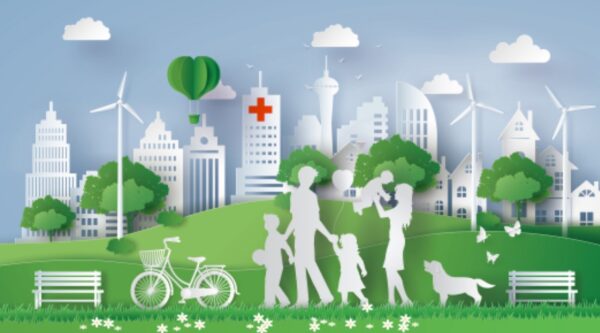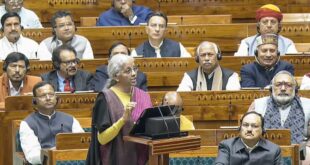 Dr. Seema Javed
Dr. Seema Javed
The Asian Development Bank is planning a side event for the G20 secretariat on “One Health” in partnership with the MoHFW, Ministry of Animal Husbandry and MoEFCC. The event will be held in Goa on April 20th.
Climate change has been identified as the single biggest health threat facing humanity by the World Health Organization.
Climate change impacts human and animal health through extreme weather such as heatwaves, floods, and drought, through the expanding spread of infectious diseases and an added burden of non-communicable diseases, as well as through fundamental changes to the air and water supplies, and food systems.
G20 leadership on climate and health is pivotal for the well-being of the world’s 7.84 billion population, particularly for lower and middle-income countries.
Developing countries with limited health infrastructure and traditional models of health service delivery are least equipped to cope with the health impacts of climate change and reduce the healthcare sector’s contribution to the changing climate.
Health is increasingly acknowledged as the heart of climate change, so health-focused climate adaptation and mitigation plans must be brought to the centre.

Climate change impacts human and animal health through extreme weather such as heatwaves, floods,and drought, through the expanding spread of infectious diseases and an added burden of non-communicable diseases, as well as through fundamental changes to the air, water supplies, and food systems. For example, the recent devastating flash floods in Pakistan left almost 10 million children in need of immediate, lifesaving support, and at risk of waterborne diseases, drowning and malnutrition.
The environmental determinants of health, such as clean air, safe drinking water and sanitation, are affected by climate change, which can increase communicable diseases and infections, as well as non-communicable diseases (NCDs), including cardiovascular disease, some cancers, respiratory health,mental disorders, injuries, and malnutrition.
The G20 has focused on public health since 2016 but this is the first time that it is focussing on climate and health. Climate change impacts human and animal health through extreme weather such as heatwaves, floods, and drought, through the expanding spread of infectious diseases and an added burden of non- communicable diseases, as well as through fundamental changes to the air, water supplies, and food systems.
Since COP26 in Glasgow, momentum has grown among governments, international agencies, and non-state actors to align health sector development with the ambition of the Paris Agreement. In Glasgow, 52 national health ministries committed to resilient, sustainable, low-carbon health systems through the COP26 Health Programme.
In 2022 the World Health Organization established The Alliance for Transformative Action for Climate and Health (ATACH) to realize the ambition set at COP26 and build climate-resilient, sustainable, low-carbon health systems, using the collective power of the WHO Member States and other stakeholders. Today, ATACH has been endorsed by 63 countries, with 24 committing to net zero health systems.
“Health for All” is impossible in a +1.5°C world. This reality requires health leaders in all countries and at all levels to play an urgent role in aligning climate and health goals. This is critical to meeting the combined ambitions of the Paris Agreement.
People’s physical, mental, and social health can benefit from addressing these environmental determinants of health, including those affected by climate change.
Consequently, reducing climate emissions in all sectors is needed to protect human health, animal health and the environment from the climate crisis. It will simultaneously bring significant health gains (co-benefits) from reduced air pollution, healthy and more sustainable diets, sustainable and active transport and more.
In May 2022, G7 health ministers declared their aim “to build environmentally sustainable and climate-neutral health systems by 2050 and to support other countries in this effort.” Its parallel commitment toATACH brings the total percentage of health emissions slated for decarbonization to almost 48% of allglobal health emissions.
G20 Health Ministers have begun focusing on the interplay between climate change and human health. There is a major opportunity for the G20 to build on this momentum and provide leadership by building on the ongoing work for the health sector to address its climate vulnerability and lead the world in delivering climate-resilient health infrastructure and services.
(Autor Environmentalist & A communications professional)
 Jubilee Post News & Views
Jubilee Post News & Views





